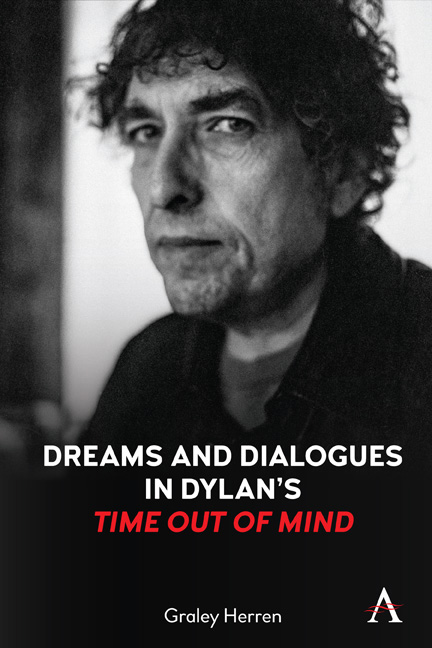Summary
Like his treatment of religion, Dylan's treatment of race in Time Out of Mind involves crossing boundaries, transgressing categories and seeking an alternate route between absolute extremes. On this level of the dream, Dylan again employs transfiguration and metempsychosis, giving voice to a dreamer who shifts personae and identifies at various points with influential figures from the past, in this case drawn from African American history. Dylan has become increasingly outspoken in the twenty-first century about his commitments and debts as an American artist. “Every one of the records I’ve made has emanated from the entire panorama of what America is to me,” he told Mikal Gilmore in 2001. For Dylan, being an American artist comes with an obligation to grapple with race, expose systemic racism and confront the shameful legacy of slavery. He is often labeled, against his will, as “the voice of his generation” for his songs from the sixties, but Dylan situates himself as a byproduct of the 1860s as much as the 1960s. In Chronicles Dylan writes about visiting the library in his early New York days and studying newspapers from the Civil War era: “It all makes you feel creepy. The age that I was living in didn't resemble this age, but yet it did in some mysterious and traditional way. Not just a little bit, but a lot.” Early on he incorporated the animating tensions and moral tests of Civil War America as “the all-encompassing template behind everything that I would write.” That template is forged from the chains of slavery.
Dylan articulates these views most pointedly in his 2012 interview with Mikal Gilmore. Following up on Dylan's frequent allusions to the Civil War era, Gilmore asks, “Do you see any parallels between the 1860s and presentday America?” Dylan replies that “the United States burned and destroyed itself for the sake of slavery. The USA wouldn't give it up. It had to be grinded out. The whole system had to be ripped out with force. A lot of killing. What, like, 500,000 people? A lot of destruction to end slavery. And that's what it really was all about.”
- Type
- Chapter
- Information
- Dreams and Dialogues in Dylan's "Time Out of Mind" , pp. 89 - 138Publisher: Anthem PressPrint publication year: 2021



